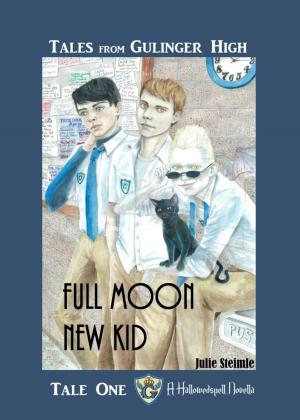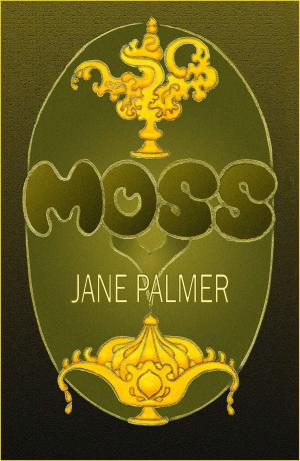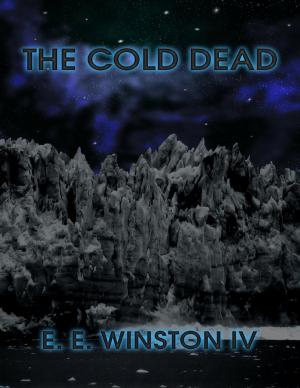| Author: | Andrea Zunino | ISBN: | 9781370689521 |
| Publisher: | Andrea Zunino | Publication: | March 1, 2018 |
| Imprint: | Smashwords Edition | Language: | English |
| Author: | Andrea Zunino |
| ISBN: | 9781370689521 |
| Publisher: | Andrea Zunino |
| Publication: | March 1, 2018 |
| Imprint: | Smashwords Edition |
| Language: | English |
Data streamed down the displays encrusting half of the entire bulkhead of the Rostock’s main deck, binaries burning bright green and orange against black convex screens.
Cygnus constellation.
Subcek Route.
3' and 20" inclination on the galactic ecliptic. Far out of reach from all commercial paths. Us. Criminals lost in space. On yet another spree.
Long range solar vessel Rostock approaching an unexplored object in the NGC7092 cluster. Current sub-light speed: 585000 Km per hour. And decreasing. A mixture of solar sail technology and chemical fuel engines taking care of the inhumanly fast deceleration.
After the tokamaks automatically shut down on entry into the new solar system, artificial eyes and ears had detected and catalogued the target, signals swelling and surging through the Rostock’s fearsome array of organic micro-cabling.
The ship’s sensory apparatus was screaming.
Re-directed impulses regrouped into the mainframe, sizzled there for a handful of microseconds and then fluidly turned into the usual command, as the ship took the final decision.
A secondary impulse shot through the semi organic nerve fibers and reached the myoelectric plaques, the signal causing real glands nested into the bulkhead to contract. Yellow globes full of bio-luminescent molecules were inundated by calcium ions, as a result of nervous reflexes sent by the sentient guide system. The murky sepia light of luciferin fluidly filled the utterly aseptic environment in preparation for the crew’s awakening.
The decision was made.
The target locked.
Another hunt was about to start.
Thunder stirred in his zero-G hammock. The ETA on the inside of his electronic eye read: Estimated Time to Arrival: 7h 23' 58". And counting down. But he couldn’t see that yet. He was still asleep.
The alert was distilled through several media and hit him with a slight distortion. It was the biomech filters. Something about the original signal losing its raw intensity during the transduction from the ship’s digital nervous system to an organic interface.
The on board computer had calculated the best route for sublight deceleration six hours before, scanning a vast chunk of alien space for miles ahead of the vessel with sensors not dissimilar to the ones Thunder would use during the hunt. The Rostock had appeared in the conventional space the closest possible to the second planet orbiting a small star into the NGC 7092 cluster, instantly shutting down the tokamaks and unfolding about one and a half million square metres of paper thin metal into space. They were close enough to the star for the solar sail to function exactly the same way for deceleration as for acceleration. The astronomical object was a purplish star locked in the orbit of a second more interesting object. Its distant twin was characterized by an aberrant emission of radiations, a second class Cepheid variable never visited before then.
The vessel had de-activated the immensely powerful magnetic fields generated by the tokamaks, abandoning the crystal nothing of faster-than-lights particles, and instantaneously decelerated under the critical threshold, taking shape in conventional space like a ballistic rocket hitting the ocean.
When it was one hundred thousand kilometers away from the alien surface, a rose of purple flames extruded from the chemical engines’ nozzles. The brisk deceleration turned the purple flower into a bright orange sun.
Only then Thunder's medical biochip woke him up. A prickling sensation inside his skull quickly dissolving into a liquid wave of pleasure.
The automated awakening procedure didn’t take long.
Data streamed down the displays encrusting half of the entire bulkhead of the Rostock’s main deck, binaries burning bright green and orange against black convex screens.
Cygnus constellation.
Subcek Route.
3' and 20" inclination on the galactic ecliptic. Far out of reach from all commercial paths. Us. Criminals lost in space. On yet another spree.
Long range solar vessel Rostock approaching an unexplored object in the NGC7092 cluster. Current sub-light speed: 585000 Km per hour. And decreasing. A mixture of solar sail technology and chemical fuel engines taking care of the inhumanly fast deceleration.
After the tokamaks automatically shut down on entry into the new solar system, artificial eyes and ears had detected and catalogued the target, signals swelling and surging through the Rostock’s fearsome array of organic micro-cabling.
The ship’s sensory apparatus was screaming.
Re-directed impulses regrouped into the mainframe, sizzled there for a handful of microseconds and then fluidly turned into the usual command, as the ship took the final decision.
A secondary impulse shot through the semi organic nerve fibers and reached the myoelectric plaques, the signal causing real glands nested into the bulkhead to contract. Yellow globes full of bio-luminescent molecules were inundated by calcium ions, as a result of nervous reflexes sent by the sentient guide system. The murky sepia light of luciferin fluidly filled the utterly aseptic environment in preparation for the crew’s awakening.
The decision was made.
The target locked.
Another hunt was about to start.
Thunder stirred in his zero-G hammock. The ETA on the inside of his electronic eye read: Estimated Time to Arrival: 7h 23' 58". And counting down. But he couldn’t see that yet. He was still asleep.
The alert was distilled through several media and hit him with a slight distortion. It was the biomech filters. Something about the original signal losing its raw intensity during the transduction from the ship’s digital nervous system to an organic interface.
The on board computer had calculated the best route for sublight deceleration six hours before, scanning a vast chunk of alien space for miles ahead of the vessel with sensors not dissimilar to the ones Thunder would use during the hunt. The Rostock had appeared in the conventional space the closest possible to the second planet orbiting a small star into the NGC 7092 cluster, instantly shutting down the tokamaks and unfolding about one and a half million square metres of paper thin metal into space. They were close enough to the star for the solar sail to function exactly the same way for deceleration as for acceleration. The astronomical object was a purplish star locked in the orbit of a second more interesting object. Its distant twin was characterized by an aberrant emission of radiations, a second class Cepheid variable never visited before then.
The vessel had de-activated the immensely powerful magnetic fields generated by the tokamaks, abandoning the crystal nothing of faster-than-lights particles, and instantaneously decelerated under the critical threshold, taking shape in conventional space like a ballistic rocket hitting the ocean.
When it was one hundred thousand kilometers away from the alien surface, a rose of purple flames extruded from the chemical engines’ nozzles. The brisk deceleration turned the purple flower into a bright orange sun.
Only then Thunder's medical biochip woke him up. A prickling sensation inside his skull quickly dissolving into a liquid wave of pleasure.
The automated awakening procedure didn’t take long.















